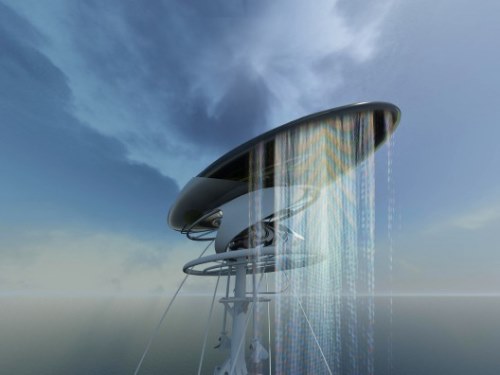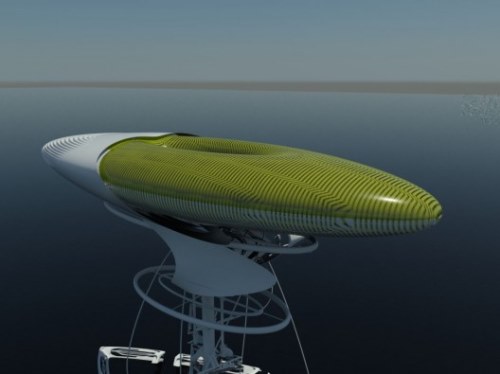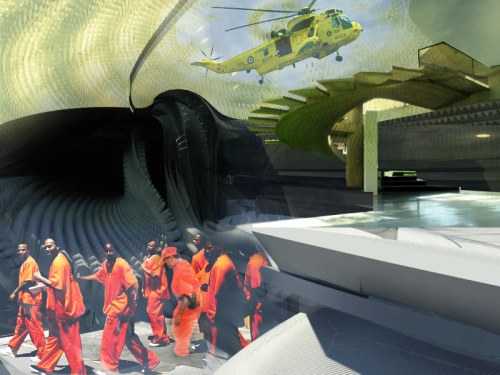Dr. Margot Krasojevic, an architect based in London, has recently drawn up a proposal for a Hydroelectric Waterfall Prison that could be built in the middle of the Pacific Ocean and act as a viable hydroelectric power station.

The Hydroelectric Waterfall Prison features in Krasojevic's proposal.
The design she has created transforms an intricate steel prison into a pumped storage facility that would use extra space in an electrical system to pump water from the ocean to a hold located on top of a prison.
In her works, Dr. Krasojevic incorporates digital technology with psychology to create structures with deep meaning. This prison, has a mental aspect similar to Alcatraz, which lies in the middle of the San Francisco Bay, only instead of just consuming energy, this prison could give some back to the mainland.
How it works
The prison would be attached to a tension-leg platform that can withstand the ocean waters below it. Sea water would have to get sucked up from the ocean and into the prison’s turbines (creating a very visually appealing waterfall effect).
This water-transferring process creates energy for the prison, and any extra power could be transferred to land through underwater cables. The hydroelectric prison would be capable of producing 3.2 megawatts of excess energy. That’s enough electricity to power over 2,000 homes.

The proposed prison could hold 12,000 cubic meters of water.
The buoyance hydroforce within the funnel of the prison helps to pump water from the ocean up into the prison by adding pressure that it needs to pump the water upward.
When it comes time to let the water out, it funnels through the floating Tyson Turbines that extract power from the flow of water. The amount of pressure and water that hits these turbines can be regulated, and as a result the amount of electricity produced can be controlled.

The inside of the prison would look something like this.
Don’t expect to see a majestic, energy-efficient prison hiding in a waterfall any time soon, but Dr. Krasojevic is speaking to developers in China about the concept.
Story via Arch Daily.
Advertisement
Learn more about Electronic Products Magazine





